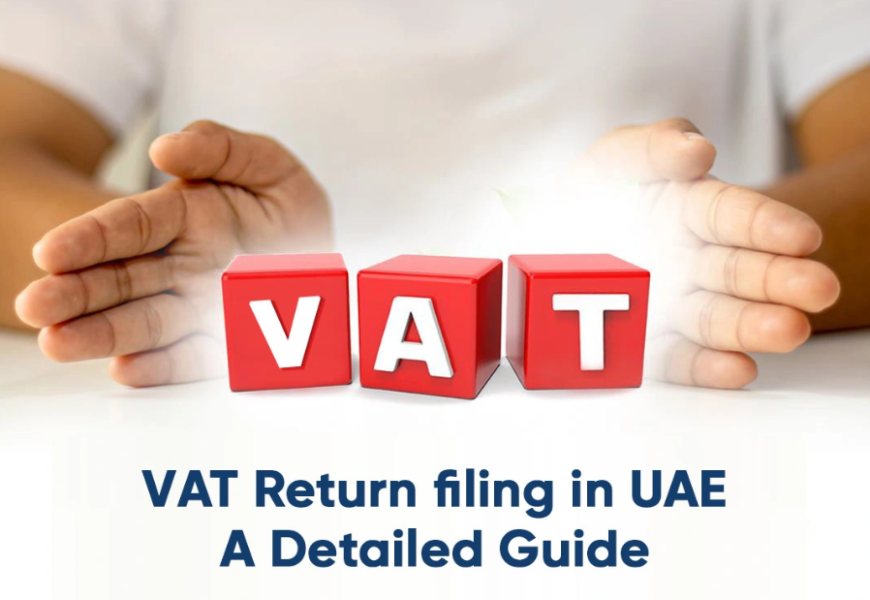As a seasoned accounting and auditing professional living in Dubai, UAE, I’ve witnessed firsthand how many businesses struggle with VAT return filing in UAE. While the process might seem straightforward, minor oversights can lead to penalties and compliance issues. In this article, I’ll share seven practical tips based on my experience, ensuring you can file your VAT returns with confidence. Along the way, I’ll also address common questions and show how a professional partner like Vigor, a leading accounting and auditing LLC in Dubai, can simplify the journey.
Understanding VAT Regulations in the UAE
The UAE’s VAT regulations are detailed but vital to master for accurate filing. Since VAT was introduced in 2018, staying compliant requires a clear understanding of the laws.
Familiarize Yourself with VAT Laws
VAT in the UAE is levied at a standard rate of 5%, with some supplies being zero-rated or exempt. Knowing these categories ensures accurate calculations.
Stay Updated on Regulatory Changes
The Federal Tax Authority (FTA) frequently updates its guidelines. Subscribing to FTA newsletters or consulting a professional ensures you’re always in the loop.
Consult the FTA Guidelines
The FTA website is a treasure trove of resources, from FAQs to detailed regulations. Bookmark it for quick reference.
Maintaining Organized Financial Records
Accurate VAT filing starts with well-maintained records. As they say, “garbage in, garbage out.”
Implement a Robust Accounting System
Invest in VAT-compliant accounting software to automate calculations and reduce errors.
Keep Detailed Invoices and Receipts
Proper documentation supports your input VAT claims and protects against audits.
Regularly Reconcile Bank Statements
Periodic reconciliation ensures your financial records match your bank transactions, a critical step before filing returns.
Ensuring Timely VAT Return Submissions
Late filings attract penalties, and trust me, you don’t want to end up in that situation.
Know Your Tax Period Deadlines
VAT returns are typically filed quarterly, but some businesses may have monthly obligations. Check your specific deadlines on the FTA portal.
Set Up Filing Reminders
Use calendar alerts or task management apps to stay ahead of deadlines.
Prepare Returns in Advance
Avoid the last-minute rush by gathering documents and reviewing data well in advance.
Accurately Calculating Input and Output VAT
Precision in VAT calculations is key to avoiding costly mistakes.
Differentiate Between Standard-Rated and Zero-Rated Supplies
Each transaction must be correctly classified. Misclassification can lead to overpayment or underpayment.
Properly Account for Exempt Supplies
Exempt supplies do not attract VAT, but their treatment affects input VAT calculations.
Utilize VAT Calculation Tools
Technology is your ally. Many accounting tools simplify VAT calculations and reduce human error.
Avoiding Common VAT Filing Mistakes
Even experienced businesses make mistakes. Here are the ones I see most often:
Double-Check All Entries
Errors in invoices or mismatched figures are common culprits for rejected filings.
Ensure Correct Use of Tax Codes
Using the wrong VAT codes can misrepresent your return, so always review these carefully.
Validate VAT Registration Numbers
Ensure that your suppliers’ VAT registration numbers are valid and up-to-date.
Seeking Professional Assistance
Navigating VAT can be overwhelming, especially for growing businesses. That’s where professional services come in.
Consult with VAT Experts
Complex transactions often require expert advice. As an accounting professional, I’ve seen how expert guidance can make a world of difference.
Outsource to Specialized Firms
Firms like Vigor specialize in VAT compliance and can handle your filings from start to finish.
Leverage Local Expertise
Local firms understand UAE-specific regulations and cultural nuances, giving you an added advantage.
Staying Informed About Penalties for Non-Compliance
Understanding penalties motivates better compliance.
Understand the Consequences of Late Filing
Late submissions can incur penalties starting from AED 1,000 for the first offense.
Be Aware of Fines for Inaccurate Returns
Inaccurate submissions may attract fines up to 50% of the unpaid tax amount.
Learn About Penalties for Non-Payment
Failing to pay VAT on time can lead to fines and interest charges.
Utilizing Technology for Efficient VAT Management
Technology has revolutionized VAT management. Here’s how to use it effectively:
Adopt VAT-Compliant Accounting Software
Software solutions help automate calculations, generate reports, and ensure compliance.
Use Digital Platforms for Real-Time Tracking
Online tools provide dashboards to monitor your VAT obligations in real-time.
Implement Secure Data Backup Solutions
Safeguarding your financial data ensures you’re always prepared for audits or system failures.
FAQs About VAT Return Filing in UAE
- What is the deadline for filing VAT returns in the UAE?
VAT returns are usually filed quarterly, with the deadline falling on the 28th of the month following the tax period. If the 28th is a holiday, it moves to the next working day. - How can I avoid penalties related to VAT return filing?
Timely submissions, accurate data entry, and thorough documentation help avoid penalties. Professional assistance, such as from Vigor, can ensure compliance. - What are the common mistakes to avoid when filing VAT returns?
Common errors include misclassification of supplies, incorrect tax codes, and incomplete documentation. Regular audits can help catch and correct these mistakes. - How do I calculate input and output VAT accurately?
Input VAT is what you pay on purchases, while output VAT is what you collect on sales. Use VAT-compliant software to ensure accurate calculations. - Can I amend a VAT return after submission if I discover an error?
Yes, errors can be corrected by submitting a voluntary disclosure form through the FTA portal. Ensure you follow the guidelines to avoid penalties.
Conclusion
Filing accurate VAT returns in the UAE doesn’t have to be stressful. By staying informed, leveraging technology, and seeking expert assistance, you can navigate the process with ease. Whether you’re a seasoned business owner or just starting, these tips will help ensure compliance and avoid unnecessary penalties. Remember, partnering with a reliable firm like Vigor can make all the difference in achieving peace of mind.









